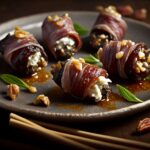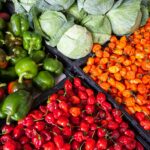Cooking is more than simply nourishment – it’s an artform with creative potential to satisfy our senses and delight our palates. No matter your level of experience as a home chef or novice novice chef, there’s always room to improve one’s culinary skills and develop more flavorful and exciting dishes! In this guide you will explore various techniques which can elevate your game, helping create flavorful yet beautiful cuisine – master them and you can become a confident, knowledgeable chef in no time at all!
1. Knife Skills: Accuracy in Cutting and Chopping
Fundamental Knife Skills: Knife skills are integral to cooking. Accurately cutting ingredients not only impacts their appearance and taste but also add professional finesse to each of your meals1. Spend some time practising different cutting techniques like julienne, brunoise and chiffonade so your dishes look enticing.
2. Mastering Flavor Profiles: Balancing Tastes
Understanding Flavor Components: A key part of improving your cooking lies in understanding flavor profiles. Play around with different combinations of sweet, salty, sour and umami flavors until you come up with something satisfying. Add depth and complexity by including herbs, spices and aromatics such as fresh herbs into the recipe – they could all bring something new!
3. Master Heat Control to Sear and Brown Foods
Learn the Techniques Behind Searing and Browning: Succeeding with Searing or Caramelization will elevate both taste and presentation of your meals. Learn to control heat with preheating pans and using appropriate oils so as to achieve that golden-brown crust on meats and vegetables.
4. Precision in Baking and Pastry Production
The Science of Baking: Baking requires precision. Learn to understand how ingredients like flour, sugar, leavening agents and fats interact to produce textures and flavors4. Practice creating basic pastries like pie crusts and puff pastries to gain confidence when working with dough.
5. Sauce Mastery: From Reducers to Emulsions
Sauces Can Transform your Cooking: Sauces have the power to transform ordinary meals into gourmet masterpieces. Learn to craft reductions, roux-based sauces and emulsifications so that your sauce repertoire grows. Play around with various flavor profiles by adding wines, stocks or herbs – creating versatile yet delectable accompaniments!
6. Explore Ethnic Cuisine from Around the World
Diving into Global Flavors: Expand your culinary horizons by discovering ethnic cuisines from all corners of the globe, researching traditional dishes, ingredients and techniques of various ethnic dishes around the globe. Doing this will not only develop your cooking abilities but will also expand your palette.
7. Plating Aesthetics: Presentation Matters
Presentation Is Key: Presentation is key when it comes to culinary art. Experiment with plating techniques focusing on color contrast, portion arrangement and decorative garnishes in order to make your dishes visually appealing; remember, we eat with our eyes first!
8. Farm-to-Table Cooking: Harnessing Fresh Ingredients
Explore Local Farmers Markets: Fresh ingredients are key components to creating truly delectable dishes, so explore local farmer markets and pay attention to seasonality to incorporate local, fresh produce in your cooking. Taking Advantage of Freshness
Incorporating freshly harvested, locally produced produce into your cooking takes only minimal preparation to showcase its full potential!
9. Time Management in the Kitchen
Organized Cooking: Effective cooking demands effective time management, with mise en place being one way of streamlining the cooking process. By prepping and organizing ingredients before beginning to cook, mise en place allows you to lessen stress while focusing on perfect execution of each step of cooking.
10. Learn and Experiment
Curitosity is the Key to Success: Curiosity in the Kitchen Culinary world is ever-evolving. Expect new techniques and trends to emerge regularly, and remain open-minded when learning. Be curious and experiment with unfamiliar ingredients, cooking methods and cuisine combinations so as to sharpen your skills while expanding creativity.
In Conclusion
Becoming an accomplished cook requires hard work and practice – and an insatiable thirst for knowledge! Master your knife skills, flavor profiles and heat control settings so you can achieve exceptional culinary creations that satisfy both palate and soul! By learning techniques like knife care and flavor profiles you can elevate your game even further and become one of today’s premier culinary maestros! Remember cooking is both art and science combined into one skill; every technique you master brings you one step closer to crafting memorable cuisine that makes an impressionful statement about who you are as an accomplished chef!




